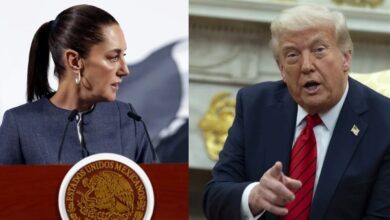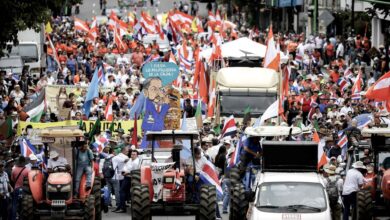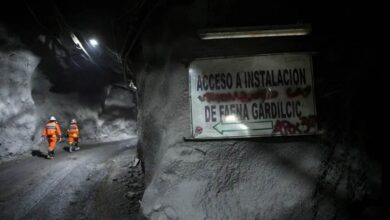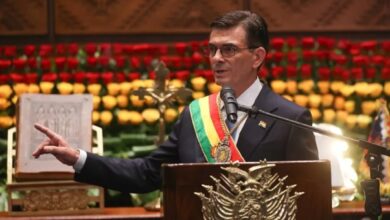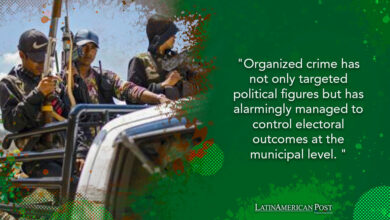Nicaragua’s New Council Targets Organized Crime Amid Controversy
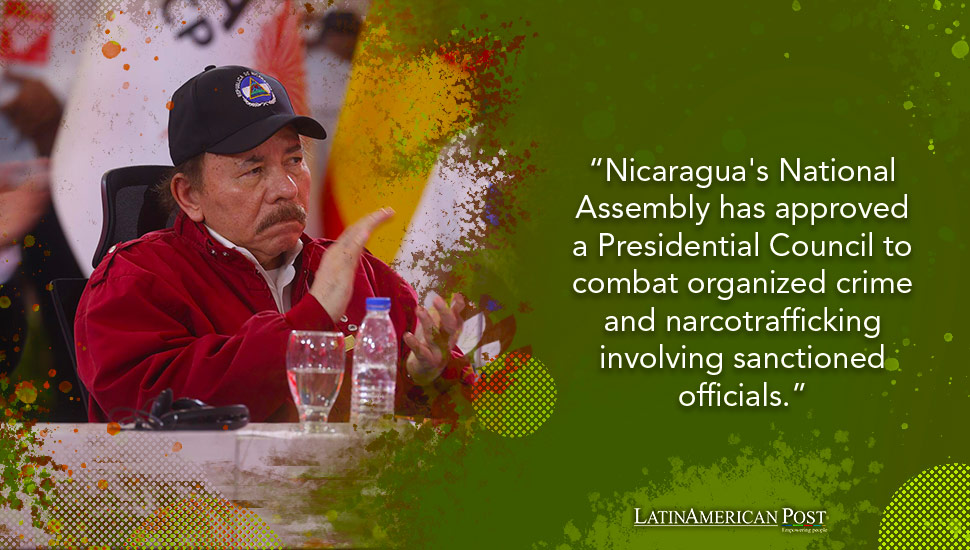
Nicaragua’s National Assembly has approved a Presidential Council to combat organized crime and narcotrafficking involving sanctioned officials, sparking international scrutiny and debate about the country’s commitment to human rights and democracy.
In a decisive move, the National Assembly of Nicaragua, controlled by the Sandinistas, has approved the creation of a Presidential Council to combat narcotrafficking, organized crime, and related offenses. This development marks a significant step in the country’s ongoing battle against crime but has also raised eyebrows due to the controversial figures involved.
The newly established Presidential Council for Coordination, Cooperation, and Information Exchange will focus on the prevention, confrontation, and judicial processing of organized crime, narcotrafficking, money laundering, terrorism financing, and the proliferation of weapons of mass destruction. This Council will comprise ten ministers and directors of public institutions, seven of whom have been sanctioned by the United States, the European Union, Canada, and other countries for human rights violations, undermining democracy, and suspected corruption.
Controversial Appointments
Among the appointed members is Denis Membreño Rivas, the retired Major General and current director of the Financial Analysis Unit. Membreño was included in the U.S. “Engel List” of corrupt and undemocratic actors on July 19, 2023, for allegedly using his position to facilitate the seizure of assets from 94 exiled political dissidents and 222 former political prisoners without any legal basis.
Another notable figure is Wendy Morales Urbina, the Attorney General, also included in the “Engel List” in 2023. She has been accused of being a key player in the Nicaraguan regime’s unjust persecution of political prisoners and civil society, facilitating a coordinated campaign to suppress dissent by confiscating properties of political opponents without legal justification.
Ovidio Reyes, the President of the Central Bank of Nicaragua, has faced sanctions from both Canada and the United States for implementing the Consumer Protection Law. The law allegedly forces Nicaraguan financial institutions to do business with designated individuals, risking sanctionable transactions.
Other members include Ana Julia Guido, the General Prosecutor, who has been sanctioned for creating a specialized unit that fabricates charges against protesters and conducts legal proceedings against them; María Amelia Coronel, the Minister of the Interior; Francisco Díaz, the Director of the Nicaraguan Police; and Eddy Medrano, the head of the General Directorate of Customs Services. All these individuals have been sanctioned for their roles in human rights abuses and corruption.
Legislative Approval and International Reactions
All 91 deputies of the National Assembly unanimously approved the law establishing the Presidential Council. Sandinista deputy Edwin Castro stated that the new structure reaffirms Nicaragua’s commitment to national security and international cooperation in the fight against organized crime. This conveys that the country will not yield to external threats.
However, the international community has expressed concerns over including sanctioned officials in the Council. These individuals are seen as symbols of the Nicaraguan government’s oppressive tactics against political dissent and civil liberties. Their involvement in the Council casts doubt on the genuine intentions behind its formation and raises questions about the effectiveness of international sanctions in curbing human rights abuses and corruption.
Organized crime has been a persistent issue in Latin America, deeply rooted in historical and socio-economic factors. The region’s strategic location between drug-producing countries in South America and drug-consuming countries in North America has made it a hotspot for narcotrafficking. Political instability, corruption, and weak law enforcement have further exacerbated the problem, allowing criminal organizations to thrive.
In Nicaragua, the Sandinista government has a contentious history with organized crime. During the Contra War in the 1980s, the country was embroiled in a civil conflict that saw both sides engaging in illicit activities, including drug trafficking, to fund their operations. The end of the Cold War and subsequent shifts in geopolitical dynamics brought new challenges, with organized crime becoming more sophisticated and entrenched.
The Sandinista Government’s Stance
The current Sandinista administration, led by President Daniel Ortega, has positioned itself as a staunch opponent of organized crime and narcotrafficking. However, its methods and the integrity of its officials have been widely criticized. The government’s crackdown on political opponents and civil society has drawn international condemnation, with many viewing these actions as efforts to consolidate power rather than genuine attempts to address crime.
The creation of the Presidential Council can be seen as a continuation of this complex narrative. On the one hand, it represents a formal commitment to tackling organized crime. On the other, including individuals with tarnished reputations suggests a potential misuse of this initiative for political ends.
Sanctions imposed by the United States, the European Union, and Canada aim to hold Nicaraguan officials accountable for human rights violations and corruption. These measures are intended to isolate the regime and pressure it to change its behavior. However, the effectiveness of sanctions is a subject of debate. While they can hinder the ability of targeted individuals to operate internationally, they often fail to bring about significant political change on their own.
In Nicaragua’s case, the sanctioned officials continue to hold influential positions, and their involvement in the new Council indicates the regime’s defiance. This situation underscores the limitations of sanctions and the need for a more comprehensive approach to supporting democratic governance and human rights in the region.
Future Implications
Establishing the Presidential Council in Nicaragua could have far-reaching implications for the country and the broader region. If the Council operates transparently and effectively, it could play a significant role in curbing organized crime and narcotrafficking. However, the presence of sanctioned officials raises concerns about its legitimacy and potential misuse.
Internationally, this development may prompt a re-evaluation of strategies to engage with and influence the Nicaraguan government. Diplomatic efforts, economic incentives, and targeted support for civil society complement sanctions, fostering an environment conducive to genuine reform.
Nicaragua’s creation of a Presidential Council to combat organized crime and narcotrafficking is a double-edged sword. While it signifies a formal commitment to addressing these critical issues, the involvement of controversial and sanctioned officials casts a shadow over its intentions and effectiveness. This development highlights the complex interplay between domestic policies, international sanctions, and the broader fight for human rights and democracy in Latin America.
Also read: Defending Privacy: Challenging Nicaragua’s Draconian Telecom Laws
As Nicaragua navigates this challenging landscape, the international community must remain vigilant and adaptive, supporting efforts that promote transparency, accountability, and justice. The future of Nicaragua’s fight against organized crime and its broader political trajectory will depend on the integrity and actions of both its leaders and the global response to its evolving political landscape.

